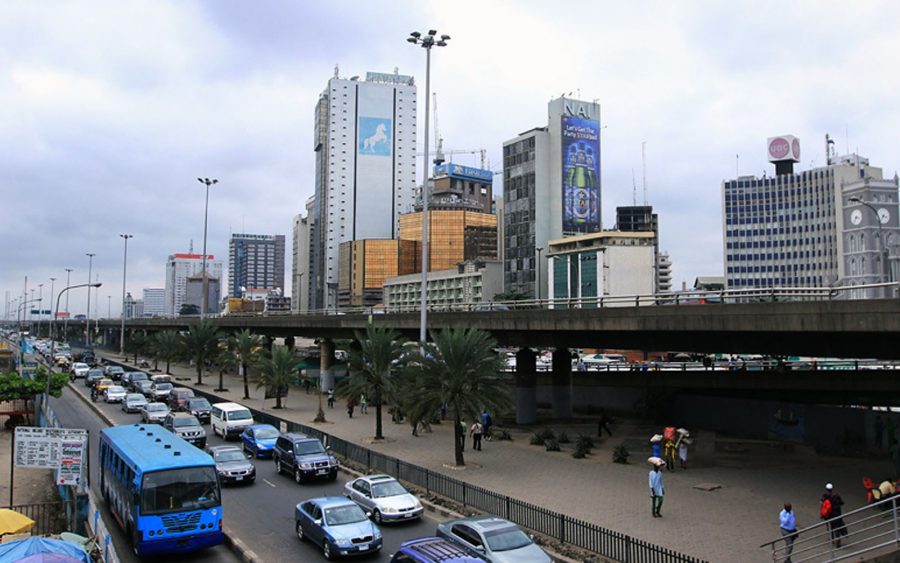Article summary
- The NICCI during its founding decided to address the trade balances between Nigeria and Indonesia which stood at 2.8 billion dollars.
- The trade balance between Indonesia and Nigeria is at currently 4.7 billion dollars
- They also urged that the creation of industrial clusters and the adoption of renewable energy sources are critical factors for manufacturing profitability and economic growth in Nigeria.
Trade between Nigeria and Indonesia has exceeded expectations, reaching $4.7 billion, surpassing the initial target of $4 billion.
The President of the Nigerian-Indonesian Chamber of Commerce and Industry (NICCI), Mr. Ishmael Balogun, disclosed this on day two of the Equipment and Manufacturing West Africa 2023 Exhibition and Conference on Wednesday in Lagos.
The NICCI revealed that at the inaugural edition of the Nigerian Indonesia Trade Forum(NITF) in Jakarta, the chamber decided to address the trade balances between Nigeria and Indonesia which stood at 2.8 billion dollars.
Trade Balance
According to the NICCI the chamber is committed to partnering with several countries like Qatar, the United Kingdom, Indonesia, and the United Arab Emirates among others, to create opportunities for Nigerian businesses and drive economic growth.
He noted that in October 2022, during the inaugural edition of the Nigerian Indonesia Trade Forum(NITF) in Jakarta, the chamber decided to address the trade balances between Nigeria and Indonesia which stood at 2.8 billion dollars.
Balogun revealed the target of 4.0 billion dollars by December was set and has currently been surpassed as the trade balance between Indonesia and Nigeria is at now 4.7 billion dollars, adding:
- “We are not relenting in our efforts but we are doubling up on creating awareness and exploring opportunities between both nations and the global village across various sectors of the economy.
- “The Nigerian Indonesia Chamber of Commerce and Industry is poised to support the growth and development of our members in their quest to meet individual and corporate objectives.
- “From June 14 to 21, we warmly invite everyone to join us in Bali, Indonesia; the number one tourism destination in the world for the 9th edition of the Bali beyond fair.
- “In October 2023, we will invite you to join us for the 38th edition of the Indonesia Trade Expo and the second edition of the Nigerian Investment and Trade Forum due to the success of the first edition,” he said.
Industrial clusters and development
They also urged that the creation of industrial clusters and the adoption of renewable energy sources are critical factors for manufacturing profitability and economic growth in Nigeria.
NICCI urged the FG to become more deliberate about the manufacturing sector’s needs to increase its contribution to the Gross Domestic Product (GDP) of the economy and enjoy more benefits from it, citing that Nigeria’s manufacturing sector has potential, it operates within limited capacity due to the various challenges but faces major challenges including power generation and supply.
He added that the government needed to further create industrial clusters identifiable to a community or locality-specific area of strength.
These clusters, he said, would engender shared power supply, human and natural resources, increase revenue and reduce crime in societies because people are gainfully employed.
- “The strength of this nation includes abundant natural resources and a huge trainable population. But, there is a need to relax collateral requirements and promote alternative financing models to drive industrialisation.
- “Government needs to streamline and simplify regulatory processes and create stable predictable policy environment and engage stakeholders in policy formulation.
- “While Nigeria faces several challenges in the manufacturing sector, there are feasible solutions to overcome them, such as infrastructure development including transportation networks, adequate power supply, and creation of industrial parks and clusters.
- “Improved access to finance through specialised lending programmes and reduced interest rates would stimulate investments.
- “Government must provide policy reforms that streamline regulations and provide clarity to attract investors and drive manufacturing activities.”
Mrs. Adetutu Ososanya, Permanent Secretary, Ministry of Commerce, Industry, and Cooperatives, Lagos, said the state government was committed to restructuring existing industrial clusters, engaging investors and development partners to facilitate energy generation for small businesses.
Ososanya said that though there were several industrial hubs in the state, they were not enough to meet the demand, adding the state government was in talks with partners to develop more clusters to drive industrialisation in the state.
What you should know
Nigeria recorded a trade surplus for the first time in three years signifying that Nigeria’s export businesses are gradually clawing back most of the losses recorded after the Covid-19 worldwide shutdown.
Nigeria’s foreign trade rose to a record level of N52.4 trillion in 2022, indicating an increase of 31.8% compared to N39.75 trillion recorded in the previous year. A further breakdown of the total trade data shows Nigeria’s export surged by 41.7% to N26.8 trillion in the review year compared to imports which surged 22.5% to N25.5 trillion.
The result is a trade surplus of N1.2 trillion, the first since Covid. Nigeria recorded back-to-back trade deficits in 2020 and 2021 when imports exceeded exports by N178.2 billion and N1.9 trillion respectively.
Leading Nigeria’s export destination was Europe racking up about N11.7 trillion during the year. The closes to Europe was Asia with around N8 trillion.
